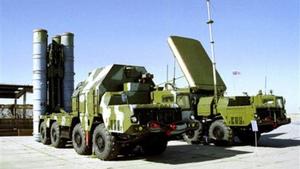AnalysisGame changer: Russia to supply Syria with advanced S-300 air-defense systems
In what should be regarded as a major victory for Iran and its two regional allies, Syria and Hezbollah, Russia has announced it would provide Syria with advanced S-300 air defense missiles. The United States, Israel, and EU and NATO countries have been vigorously, and anxiously, pressing Russia not to go ahead with the sale of the missiles, because the deployment of the S-300 would make the imposition of a no-fly zone over Syria, let alone air attacks on targets inside Syria — like the ones Israel conducted in late January and early May — much costlier.

The Russian S-300 mobile ground-to-air defense system // Source: biettuot.vn
In what should be regarded as a major victory for Iran and its two regional allies, Syria and Hezbollah, Russia has announced it would provide Syria with advanced S-300 air defense missiles.
The United States, Israel, and EU and NATO countries have been vigorously, and anxiously, pressing Russia not to go ahead with the sale of the missiles, because the deployment of the S-300 would make the imposition of a no-fly zone over Syria, let alone air attacks on targets inside Syria — like the ones Israel conducted in late January and early May — much costlier.
The S-300 system was originally developed, in the late 1970s and early 1980s, by the Soviet Air Defense Forces to defend against aircraft and cruise missiles. Later versions of the system have the ability to intercept ballistic missiles.
The S-300 — its NATO designation is SA-10 Grumble — is one of the most effective and versatile anti-aircraft missile systems currently deployed. The system’s radars can simultaneously track up to 100 targets, while simultaneously engaging up to twelve targets. The S-300 missiles have three other advantages over competing systems: they are sealed rounds which require no maintenance over their lifetime; they are mobile and can be carried on trucks, thus making locating and destroying them more difficult, and they can be made ready to launch in about five minutes.
Haaretz reports that Russian Deputy Foreign Minister Sergei Ryabkov said the deal to provide the sophisticated air defense system to Syria would help restrain some “hot heads” considering a military intervention in Syria.
